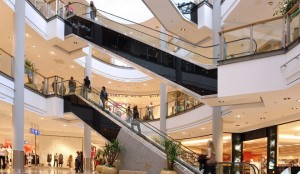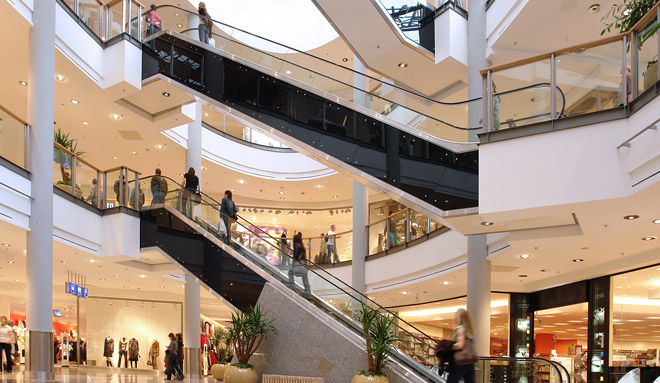
(Photo courtesy of Maxim Holdings Website)
By: Hamada Ismail
Businesses Establishments KAD plans to open six commercial centres, under the name Mega Build, within two years, with EGP 8bn in investments for the benefit of the International Commercial Centres Management Company (ICCMC).
It will also inaugurate the Maxim Mall project in New Cairo owned by Maxim Holdings with EGP 150m worth of investments.
KAD is also close to signing two contracts for the management of two other projects in New Cairo and Obour city, with EGP 250m in investments.
Mohamed Elhamy Kerdany, president of the Egyptian Council for Shopping Centres (ECSC), said KAD plans to offer six business centers within two years under the name “Megabytes” in the cities of New Cairo, 6th of October, Al-Shorouq, Katameya, the Pyramid Plateau, and the northern coast, at a cost of EGP 8bn.
He explained that KAD signed two contracts to manage projects for Maxim Holding.
The first of these is Maxim Mall, covering an area of 20,000 square metres in New Cairo on Road 90 in front of the American University in Cairo campus. “It includes a supermarket, restaurants, cafeterias, global brands and fashion shops with EGP 150m in investments,” he said. “The project is currently still being implemented and is expected to be finished and opened by early next year.”
He added that the second commercial center will be built on an area of 40,000 square metres on the highway behind the Sheraton Hotel, with investments of EGP 160m. It is expected to open within 18 months, he confirmed.
Kerdany explained that CAD plans to manage more commercial centres for Maxim.
KAD was also contracted by Al-Habib Business to manage Kids Mall project which includes a 14,000 square metres rentable land in New Cairo, and is currently due to open mid next year with EGP 80m in investments.
KAD is close to signing two contracts for the management of two new commercial centres, the first with EGP 250 million investments 6th of October City including rentable spaces of 40,000 square metres, while the second will be set up on an area of 25,000 square metres in Obour City with 300m in investments.
Kerdany said the leasable space in commercial centres in Egypt is about 2.2 million square metres, which he considered a relatively small number not commensurate with the volume of trade in Egypt. He pointed to the necessity of renovating existing shopping centres to comply with international standards and to expand the construction of malls in provinces.
He pointed out that the activities of malls management companies are not “familiar to the local market”, although they are widespread globally.
These activities include overseeing all developmental phases of the project, starting from proactive studies of the land, to achieving the highest returns on investments by identifying commodity choices appropriate for the mall based on the site, supply and demand forces, and the needs of the market.
He added that the proactive studies enable the management company to identify the targeted tenants for each unit and achieve a per metre rental value that reflects the site and the activity for which it will be used.
These studies include the five year project plans and the expected returns on investments.
The role of the management company extends to post-marketing and construction operations, Kerdany said, as it handles the mall’s management and “preserves its character”. However, the number of companies specialised in this type of management remains limited despite its importance,
Kerdany declared that current events and the political tension during the past two years pushed customers to prefer shopping centres near their place of residence due to security fears. This was reflected in the surge in activity in smaller malls ranging between 6,000 and 25,000 square metres.
“I expect to see smaller malls becoming very active, especially with the ease of their development, they require less liquidity and available lands to bring the projects forward,” he said.
“Planning processes for shopping centres need to be revisited, in light of the scramble to establish malls close to each other and include commercial centres,” Kerdany added.
He pointed out that commercial lands enjoy great demand due to their scarcity and large yields, adding that they are concentrated in certain cities like New Cairo and 6th of October, while most governorates suffer a comparative lack of such lands.
Kerdany demanded the option of using the usufruct system in offering commercial lands, so the developer can channel their liquidity toward construction instead of land purchases, in addition to settling land prices in advance to reduce the substantial increases that result from demand spikes, and granting concessions to stimulate developers.
“Usufruct durations must not be less than 40 years in order to create confidence among customers,” he said. “The developer can then recover the cost of the mall through the rental value during the first four years of its opening.”
Kerdany recommended rent as opposed to purchases as the best method to manage spaces in commercial centres, “especially since the ownership system displays reduce the value of the mall, especially because the owner will control opening hours of the outlet”.
The owner may also change the nature of the retail activities at the outlet, and this may not be in line with the mall’s overall flavour and design. “Keeping the ownership rights in the hands of the developer,” he said, “therefore controls the quality of the activities there and binds the leaser to comply with the activities and standards set by the developer as part of the leasing agreement.”
He also said that putting lands under auction “is damaging to the sector”.
“The land auctions held recently in New Cairo are a dangerous indicator regarding real estate transactions,” he said. “They point to a new wave of unreal inflation in property prices if this system continues, and this will require state intervention and the adoption of multiple systems for offerings that correspond to the nature of the activity, and to achieve a balance in the market.”
Kerdany identified a trend among major real estate companies to enagage with developing commercial centres, with the boom in these activities encouraging more interest. He said there had conversely been a decline in residential and tourism projects.



